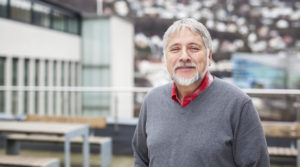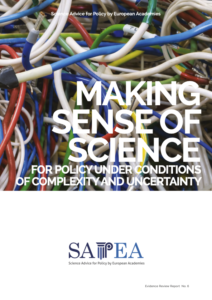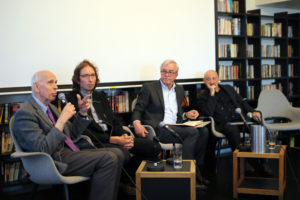Mange gjør det annerledes enn Norge. Hvorfor?

Eystein Jansen er akademisk direktør for Academia Europaea Bergen Knowledge Hub.
Av Eystein Jansen, akademisk direktør for Academia Europaea Bergen Knowledge Hub.
Vi lever i en tid med mye usikkerhet. Det er vanskelig å skille fakta fra feilinformasjon, og internett gjør at det er vanskelig å skille mellom forskjellige oppfatninger som kan bruke forskning som argument for ulike politikkalternativ.
Særlig er dette merkbart i miljø- og klimapolitikken, i helsepolitikken, mat-og landbrukspolitikken og i spørsmål knyttet til bioteknologi. Spørsmålet blir da om vi har et system som greier å sortere fakta fra skeivinformasjon og om politikerne har et system rundt seg der de får mest mulig uavhengig informasjon før beslutninger tas.
Ofte hører vi at beslutninger er tatt på bakgrunn av faglige råd, men hvor uavhengig er disse? I Norge har departementene sine faginstanser, ofte forvaltningsinstitutt og lignende som brukes aktivt. I mange andre land har man kommet til at dette ikke gir tilstrekkelig uavhengighet i komplekse spørsmål, og bruker vitenskapsakademiene for å sikre uavhengige prosesser for å frembringe faktagrunnlag for politikkutviklingen.
EU har opprettet SAM (Scientific Advice Mechanism) for dette forholdet, og har en gruppe uavhengige vitenskapelige rådgivere som gir faglige innspill til politikk. Rådgiverne kan på eget initiativ eller på oppdrag fra EU-kommisjonen be vitenskapsakademiene i Europe om å utvikle et faktagrunnlag på et felt som er uklart og som trenger politikk.

SAPEAs nyligste rapport, “Making sense of science”, om tilgangen på forskningsbasert politikkrådgivning.
Dette skjer i prosjektet SAPEA, der de europeiske akademiene er medlemmer. Disse, som består av fremragende forskere, er helt uavhengige av myndighetene, og faren for bindinger bli mindre.
Systemet har fått frem faggrunnlag for politikk på en rekke områder. Slik får man et uavhengig faglig grunnlag, som de vitenskapelige rådgiverne kan bruke inn mot politikkutformingen. Systemet ser ut til å virke!
Burde ikke Norge etablere noe tilsvarende? I Finland har man nå utviklet en lignende ordning, med gode resultat. Politikken blir bedre, og den får større legitimitet med et slikt system. Hva holder oss tilbake?
På møtet “Forskningsbasert politikk?” (Facebook) på Litteraturhuset i Oslo den 4. november får vi høre fra europeiske eksperter om hvordan politikkutforming kan bli mest mulig i tråd med faglig kunnskap og være vitenskapsbasert, og vi får høre om hvordan norske akademikere og politikere tenker om den norske situasjonen og annerledesheten her i landet.






